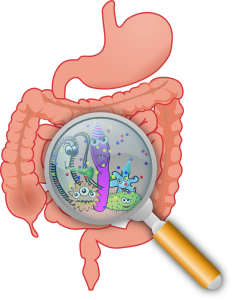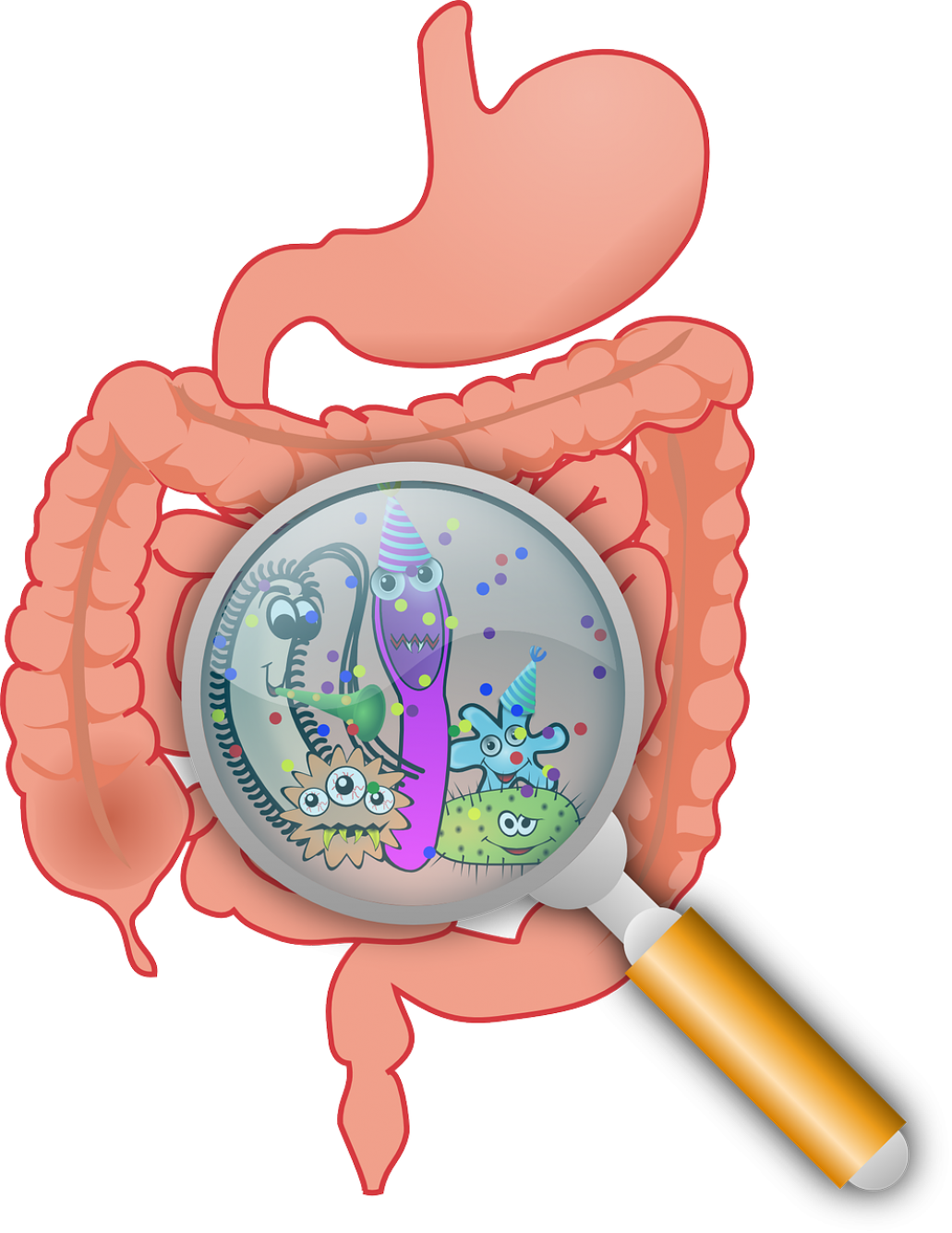The human gut contains 1013–1014 microorganisms, much more than the cells of our organism, and 100 times more  genes than our genome! These microorganisms have evolved to have a symobiotic (win-win) relationship with the human body over millenia: We provide them with a place to live, and they help us with a host of functions. These symbiotic microorganisms, chiefly bacteria, are also known as probiotics.
genes than our genome! These microorganisms have evolved to have a symobiotic (win-win) relationship with the human body over millenia: We provide them with a place to live, and they help us with a host of functions. These symbiotic microorganisms, chiefly bacteria, are also known as probiotics.
A healthy gut is indispensable in immune tolerance, intestinal homeostasis, amino acid and vitamin synthesis (processing) of the host, leading to a healthy metabolism. Symbiotic bacteria help inhibit intestinal colonization by pathogens, which can cause illness. A happy and healthy gut microbiome helps to boost energy levels, which can translate into better performance by:
- Reducing fatigue through better lactic acid breakdown.
- Controlling redox function, which can delay fatigue symptoms.
- Increasing ATP levels, your molecular energy.
- Modulating metabolism.
- Supplying essential metabolites to your mitochondria – your cell’s powerhouse.
- Regulating energy harvest, storage, and expenditure.
Poor gut health may be a contributing factor in some diseases and conditions, such as obesity, metabolic syndrome, anxiety and depression, autoimmune diseases (such as rheumatoid arthritis), necrotizing enterocolitis, skin disease, ulcerative colitis, Crohn’s disease, and irritable bowel syndrome. One study by The Human Microbiome Project found in stool samples that people with a less diverse microbiome were more likely to be diagnosed with irritable bowel disease, supporting the idea that the human microbiome really does have a significant impact on health.
Gut health can be compromised by stress, which in turn increases gut permeability (leaky gut syndrome). Antibiotics eliminate bacteria indiscriminately, and have been identified as the culprit in post-antibiotics Clostridium Difficile infections.
You can support your gut by feeding it Prebiotics, which are typically fibers that are fermented by your gut bacteria and may also affect brain health. One study found that taking a prebiotic called galactooligosaccharides for three weeks significantly reduced the amount of stress hormone in the body: cortisol. Other foods that can help support gut health are:
- Omega-3 fats: These fats are found in oily fish and also in high quantities in the human brain. Studies in humans and animals show that omega-3 can increase good bacteria in the gut and reduce risk of brain disorders
- Fermented foods: Yogurt, kefir, sauerkraut and cheese all contain healthy microbes such as lactic acid bacteria. Fermented foods have been shown to alter brain activity
- High-fiber foods: Whole grains, nuts, seeds, fruits and vegetables all contain prebiotic fibers that are good for your gut bacteria. Prebiotics can reduce stress hormone in humans.
- Polyphenol-rich foods: Cocoa, green tea, olive oil and coffee all contain polyphenols, which are plant chemicals that are digested by your gut bacteria. Polyphenols increase healthy gut bacteria and may improve cognition
- Tryptophan-rich foods: Tryptophan is an amino acid that is converted into the neurotransmitter serotonin. Foods that are high in tryptophan include turkey, eggs and cheese.
Probiotics are also available in supplement form, and studies have shown a moderate beneficial effect in addressing the symptoms of depression and anxiety, irritable bowel syndrome and inflammatory disorders.
Written by the Osteopathic Team at the Vale Practice
References:
https://www.healthline.com/nutrition/gut-brain-connection#section3
https://www.ncbi.nlm.nih.gov/pubmed/28357027
https://www.ncbi.nlm.nih.gov/pmc/articles/PMC3417654/ https://www.ncbi.nlm.nih.gov/pmc/articles/PMC5131718/
https://www.ncbi.nlm.nih.gov/pmc/articles/PMC5437217/
Rankin, Alan, Ciara O’Donavon, Sharon M Madigan, Orla O’Sullivan, and Paul D Cotter. “‘Microbes in Sport’ – The Potential Role of the Gut Microbiota in Athlete Health and Performance.” British Journal of Sports Medicine 51, no. 9 (May 2017): 698–99. https://doi.org/10.1136/bjsports-2016-097227.
Clapp, Megan, Nadia Aurora, Lindsey Herrera, Manisha Bhatia, Emily Wilen, and Sarah Wakefield. “Gut Microbiota’s Effect on Mental Health: The Gut-Brain Axis.” Clinics and Practice 7, no. 4 (September 15, 2017). https://doi.org/10.4081/cp.2017.987.

